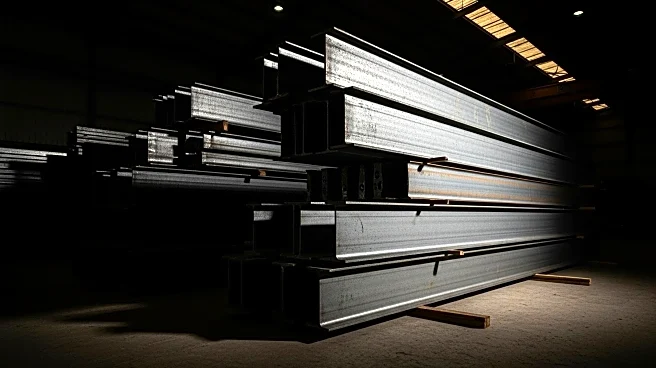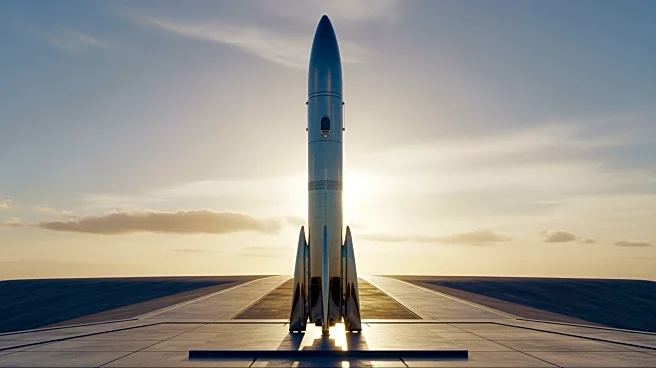What is the story about?
What's Happening?
The European Union has announced a significant increase in steel import tariffs, raising them to 50 percent in an effort to protect its struggling steel sector. This decision, unveiled by Trade Commissioner Maroš Šefčovič, aims to curb global overproduction by slashing tariff-free quotas nearly in half, reducing them to 18.3 million metric tonnes. While the measure primarily targets major steel producers like China, India, and Turkey, developing countries, including several African nations, are exempt from these new restrictions. African exporters such as South Africa, Egypt, Morocco, Nigeria, Algeria, and Tunisia, which collectively exported under 3 million tonnes of steel to Europe in 2024, fall below the threshold for penalties. However, the EU's protectionist stance could lead to redirected steel supplies from Asia and Latin America flooding African markets, potentially undercutting domestic industries.
Why It's Important?
The EU's decision to increase steel tariffs could have significant implications for global trade dynamics, particularly affecting African economies. While African exporters are temporarily shielded from direct penalties, the influx of cheap steel from redirected global supplies poses a threat to local industries. This could undermine Africa's industrial growth and infrastructure development, especially as the continent is experiencing a boom in infrastructure projects and the African Continental Free Trade Area (AfCFTA) is creating new demand. The situation calls for coordinated policy responses to protect domestic markets and sustain long-term industrial ambitions.
What's Next?
African nations may need to implement strategic measures to safeguard their domestic steel industries from the potential influx of cheap steel. Industry leaders in South Africa have already urged the government to act swiftly to protect the local market. As Europe raises barriers, major steel producers from Asia and Latin America are likely to redirect their excess supply toward emerging markets, including Africa. This situation could necessitate policy interventions to prevent market disruptions and support local producers.
Beyond the Headlines
The EU's protectionist measures highlight broader global trade tensions and the challenges faced by developing countries in navigating these dynamics. The potential influx of cheap steel into African markets could have long-term implications for the continent's industrialization efforts and economic growth. Additionally, this situation underscores the importance of international trade agreements and the need for developing countries to negotiate favorable terms to protect their industries.














